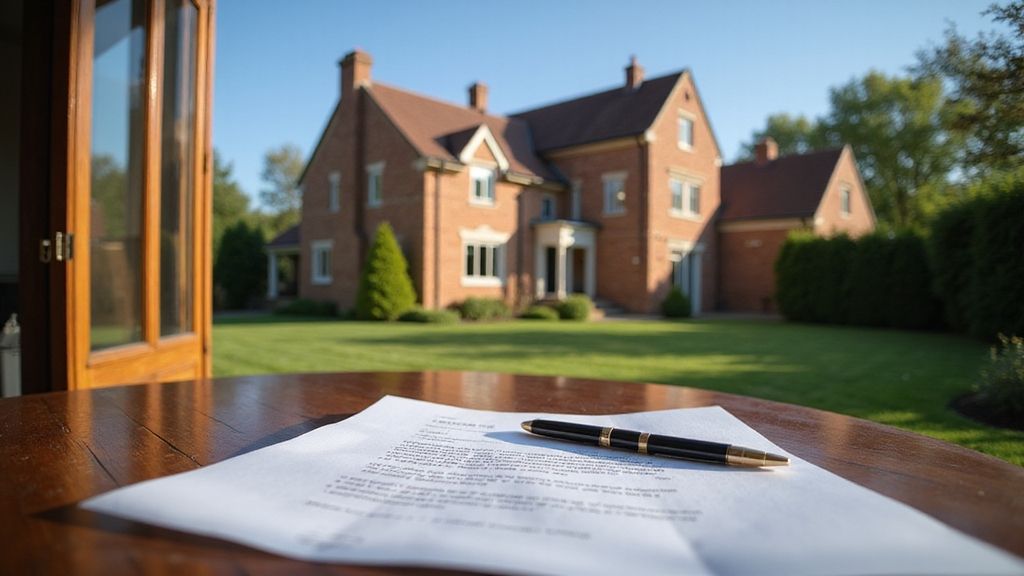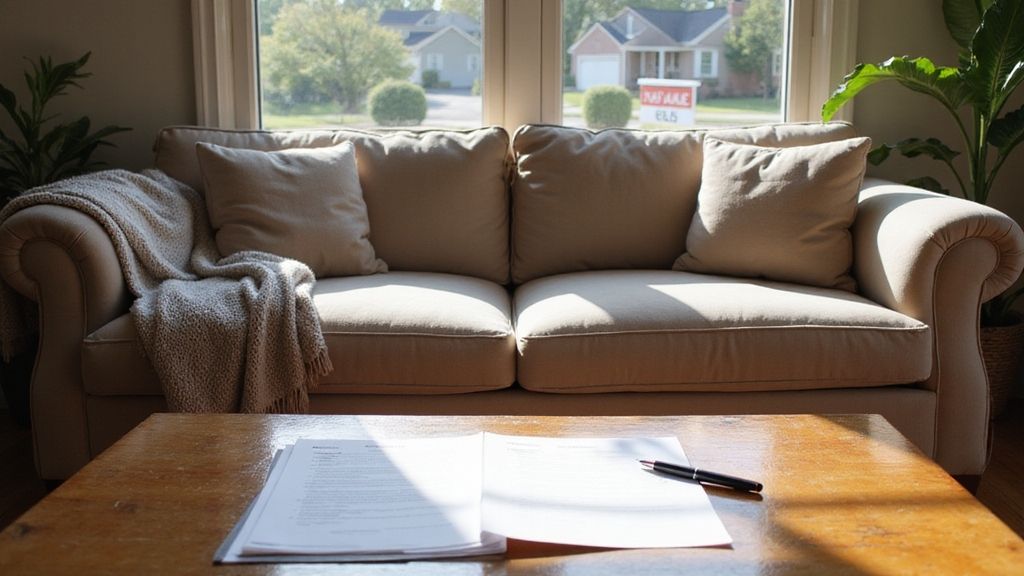Lease Agreements and Selling Your Property: What Landlords Need to Know
The time has come to sell your tenant-occupied property. As a landlord, you care about your tenants and want to show them respect. Although the house they are living in is yours to sell, you always want to keep their best interest in mind throughout the sales process, as an angry tenant could slow down the selling process significantly. It is also important that you abide by the terms of the lease and do not violate any tenant agreements you have made. (1) As a landlord in Pennsylvania, you must grasp the nuances of lease agreements and how they can affect your ability to sell Property. We'll look at the most critical components of lease agreements and selling your Property that every landlord should understand.
Understanding Lease Agreements
A lease agreement is a legally binding contract between a landlord and a tenant that sets out the terms and conditions of renting a property. In Pennsylvania, cash home buyer Easton lease agreements must follow state landlord-tenant rules that control many parts of the landlord-tenant relationship, such as rent payment, security deposits, property maintenance, and lease termination.
Types of Lease Agreements
Fixed-Term Lease
A fixed-term lease, also known as a term lease or a lease for a specific term, is a rental arrangement with a predetermined duration. This time is usually specified, such as six months or a year, and it defines the lease's start and finish dates. During this time, both the renter and the landlord are bound by the terms and conditions of the lease agreement.
One of the primary benefits of a fixed-term lease is that it provides security and stability to both parties. The we buy homes for Cash Easton is assured they can stay in the Property for the lease term, while the landlord gets promised rental money for the set period.
At the end of the set period, the lease can be renewed for another fixed term, converted to a month-to-month arrangement, or terminated based on the tenant and landlord agreement. If the lease is not renewed or terminated, it may be converted to a month-to-month lease in some countries.
Fixed-term leases frequently include provisions governing rent hikes, maintenance requirements, and other tenancy conditions. Both tenants and landlords should thoroughly research and understand the conditions of a fixed-term lease before signing to ensure they are satisfied with the obligations and expectations set in the agreement.
Month-to-Month Lease
A month-to-month lease, also known as tenancy-at-will, is an indefinite renting agreement between a landlord and a tenant in which rent is usually paid monthly. Unlike a fixed-term lease, which generally lasts for a set amount of time, such as one year, this lease has no expiration date.
One of the primary advantages of a month-to-month lease is its flexibility. Both the landlord and the tenant can terminate the lease with adequate notice, usually 30 days, but this might vary depending on local regulations and the provisions of the lease agreement. This flexibility might benefit renters who need to move on short notice and landlords who desire the opportunity to change the rent or terminate the lease if necessary.
However, this flexibility can also be a disadvantage, as it allows the landlord or tenant to terminate the lease on relatively little notice, which can be problematic for the other party. Furthermore, because the lease has no set end date, the landlord may choose to raise the rent at any moment, subject to local rent control rules.
A month-to-month lease can offer tenants flexibility and freedom, allowing them to move without a long-term lease. However, it also implies that they may need more stability, suffer rent rises, or be forced to relocate on short notice.
A month-to-month lease might be an excellent option for tenants who value flexibility and independence. Still, you should carefully evaluate the potential negatives and ensure you understand the lease terms before signing.
Fixed-Term Lease
A tenant-at-will arrangement is a renting agreement in which a renter can occupy a property without a lease or formal agreement. In this arrangement, the landlord or the renter may terminate the contract at any time, as long as adequate notice is given, usually 30 days. This arrangement is frequently more flexible than a traditional lease, but it may also be less secure for both parties because the conditions are not as well specified.
Key Lease Terms
- Rent Amount and Due Date: The lease should clearly state the monthly rent amount and due date.
- Security Deposit: The lease should state the security deposit amount and the terms under which it will be returned to the tenant.
- Property Maintenance: The lease should specify the landlord and tenant's property maintenance and repair responsibilities.
- Lease Termination: The lease should outline the procedure for ending the lease, including the notice period.
Sell Your Property with Tenants in Place
If you're considering selling your home with tenants to a sell my house fast Allentown investor, you should first grasp the rights and duties of both landlords and tenants under Pennsylvania law.
Tenant Rights
Right to Remain in the Property: In Pennsylvania, tenants have the right to stay in the Property until their lease agreement expires, even if it is sold.
Notice of Sale: Landlords must give renters written notice of the sale of their Property.
Landlord Responsibilities
Disclosure of Sale: Landlords must inform potential buyers that their Property is tenant-occupied.
Tenant's Right of First Refusal: In some situations, tenants may have the first option to acquire the Property before it is sold to another buyer.
Ending a Lease Agreement
If you decide to sell your Property to a cash for houses Easton investor while the lease agreement is still in place, consider terminating the lease early.
Lease Termination
Mutual Agreement: You and your may mutually agree to end the lease early.
Lease Violation: If the renter breaks the lease terms, you may be able to terminate it early.
Notice of Termination: You must provide the tenant with written notice that you intend to terminate the lease.
Conclusion
Lease agreements are crucial to the landlord-tenant relationship and can substantially impact your capacity to sell your home. Understanding the various forms of lease agreements, primary lease conditions, and your rights and responsibilities as a landlord in Pennsylvania can allow you to confidently sell your Property with tenants in place or terminate a lease agreement.
Give us a call anytime at 484-484-0971 or fill out this quick form to get started today!
Get A Fair Cash Offer On Your House

About the author
Mathew Pezon
Mathew Pezon is the founder and CEO of Pezon Properties, a cash home buying company located in Lehigh Valley, Pennsylvania. With several years of experience in the real estate industry, Mathew has become a specialist in helping homeowners sell their properties quickly and efficiently. He takes pride in providing a hassle-free, transparent, and fair home buying experience to his clients. Mathew is also an active member of his local community and is passionate about giving back. Through his company, he has contributed to various charities and causes.
















